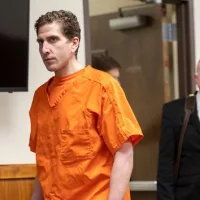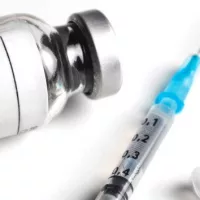
(MOSCOW, Idaho) — Lawyers for Bryan Kohberger, the man accused of killing four Idaho college students last year, are leaving the door open regarding whether they will offer an alibi defense at his upcoming capital murder trial, but are not committing to presenting one.
In a new court filing, the one-time Ph.D. student’s attorney suggests Kohberger, 28, may not have been at the home where Ethan Chapin and Xana Kernodle, both 20, and 21-year-olds Madison Mogen and Kaylee Goncalves were stabbed to death in the early-morning hours of November 13. The filing offered no additional details as to what Kohberger’s alternative whereabouts might have been.
There may be “evidence corroborating Mr. Kohberger being at a location other than the King Road address,” Kohberger attorney Anne Taylor writes in the filing, evidence that “will be disclosed pursuant to discovery and evidentiary rules as well as statutory requirements.”
Taylor notes Kohberger’s team “continues investigating and [preparing] his case,” adding “it is anticipated this evidence may be offered by way of cross-examination of witnesses produced by the State as well as calling expert witnesses.”
The filing came just before the Monday, July 24 deadline for Kohberger to decide whether to offer an alibi defense, and to inform the prosecution. That deadline was already an extension, following a June request from Kohberger’s team for more time to decide whether to offer an alibi defense.
Late Monday evening, the court received that filing, which was forwarded on Tuesday morning for public posting.
The defense move leaves the door open for Kohberger to present an alibi defense later, legal experts say.
“Idaho law requires that the defense notify the prosecution of the possibility of an alibi defense. Here they are preserving that right, without committing,” said Matt Murphy, former Orange County prosecutor and ABC News legal contributor. “And as they note, the investigation is ongoing.”
“An alibi defense could be within the realm of possibility here, but there can also be corroborating evidence for conflicting facts. And if the state did their due diligence there can’t be an alibi,” David Calviello, former New Jersey prosecutor who is now a criminal defense attorney, told ABC News. “Proving he did it and proving he was somewhere else both can’t be true.”
“They may not have all the answers yet. It remains to be seen. And for now, the defense has a right to keep investigating their case, and [Kohberger] has a constitutional right to remain silent,” Calviello added. “They’re showing good faith to the court by meeting the deadline while protecting their client’s case as they choose their best defense.”
Kohberger was indicted in May and charged with four counts of first-degree murder and one count of burglary. He declined to offer a plea at his arraignment, so the judge entered a not guilty plea on his behalf.
A trial date in the quadruple homicide has been set for Oct. 2, though that could be delayed. Prosecutors have said they will seek the death penalty against Kohberger.
Prosecutors allege that in the early-morning hours of Nov. 13, 2022, Kohberger, a criminology Ph.D. student at nearby Washington State University, broke into an off-campus home and stabbed the four University of Idaho students to death.
After a six-week hunt, police zeroed in on Kohberger as a suspect, saying they tracked his white Hyundai Elantra and cellphone signal data, and recovered what authorities said was his DNA on a knife sheath found next to one of the victims’ bodies.
Kohberger was arrested on Dec. 30, 2022, at his family’s home in Pennsylvania, after driving cross-country to spend the holidays in Albrightsville.
Authorities have said that the DNA evidence taken from the knife sheath at the crime scene “showed a statistical match” with a cheek swab taken directly from Kohberger after his arrest, according to court filings.
But Kohberger’s attorneys pushed back on that analysis in several court filings, saying the “statistical probability is not an absolute,” and pointing to what they called a “total lack of DNA evidence” from the victims in Kohberger’s home or car.
This latest alibi filing comes amid Kohberger’s defense attempting to cast doubt on the strength of investigators’ evidence and whether it pointed irrefutably to their client alone, instead suggesting that Kohberger’s DNA could have been planted at the scene, and pointing to three additional males’ DNA they say was found in and around the scene after the killings.
Copyright © 2023, ABC Audio. All rights reserved.















